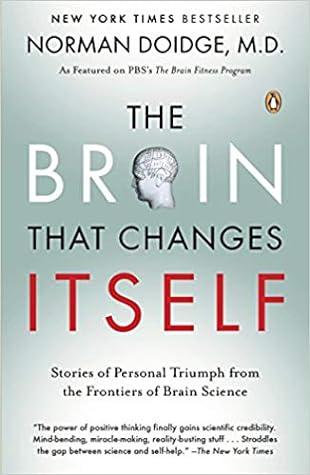More on this book
Community
Kindle Notes & Highlights
The right hemisphere generally processes nonverbal communication; it allows us to recognize faces and read facial expressions, and it connects us to other people. It thus processes the nonverbal visual cues exchanged between a mother and her baby. It also processes the musical component of speech, or tone, by which we convey emotion. During the right hemisphere’s growth spurt, from birth until the second year, these functions undergo critical periods.
A particularly important critical period lasts from approximately ten or twelve months to sixteen or eighteen months, during which a key area of the right frontal lobe is developing and shaping the brain circuits that will allow infants both to maintain human attachments and to regulate their emotions.
Scores of studies show that sleep affects plastic change by allowing us to consolidate learning and memory. When we learn a skill during the day, we will be better at it the next day if we have a good night’s sleep. “Sleeping on a problem” often does make sense.
REM sleep seems necessary for neurons to grow normally. REM sleep has also been shown to be particularly important for enhancing our ability to retain emotional memories and for allowing the hippocampus to turn short-term memories of the day before into long-term ones
The plastic paradox is that the same neuroplastic properties that allow us to change our brains and produce more flexible behaviors can also allow us to produce more rigid ones.
Anything that involves unvaried repetition—our careers, cultural activities, skills, and neuroses—can lead to rigidity.
He is always looking for novel things to do, and once he’s engaged in something, he turns his full attention to it—the necessary condition for plastic change.
His philosophical attitude also protects his brain because he doesn’t get worked up about little things—no small matter, since stress releases glucocorticoids, which can kill cells in the hippocampus.


